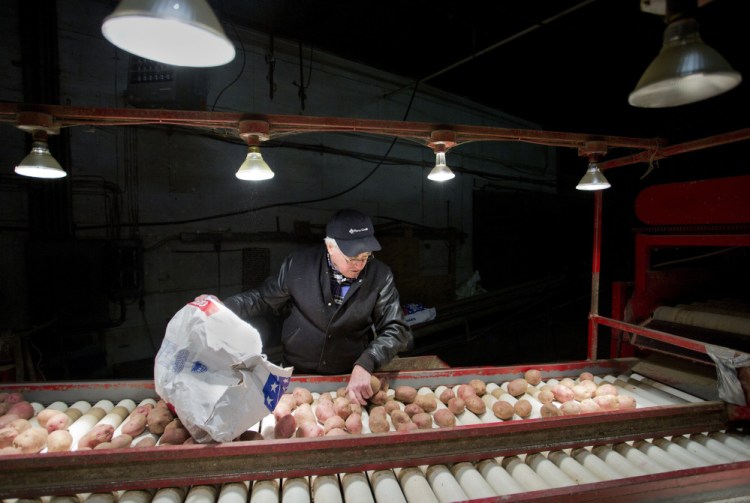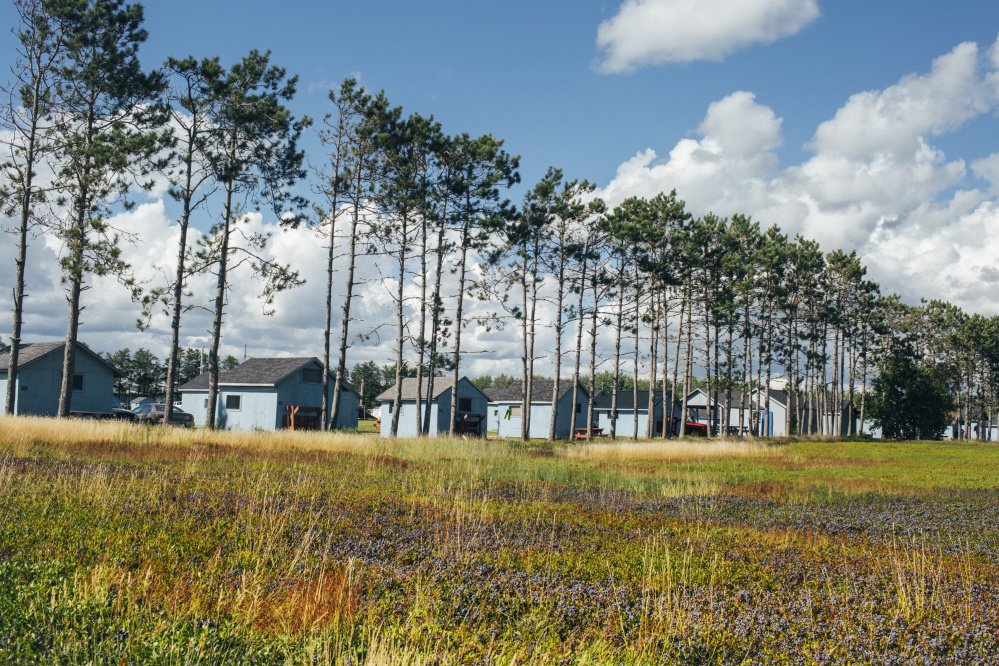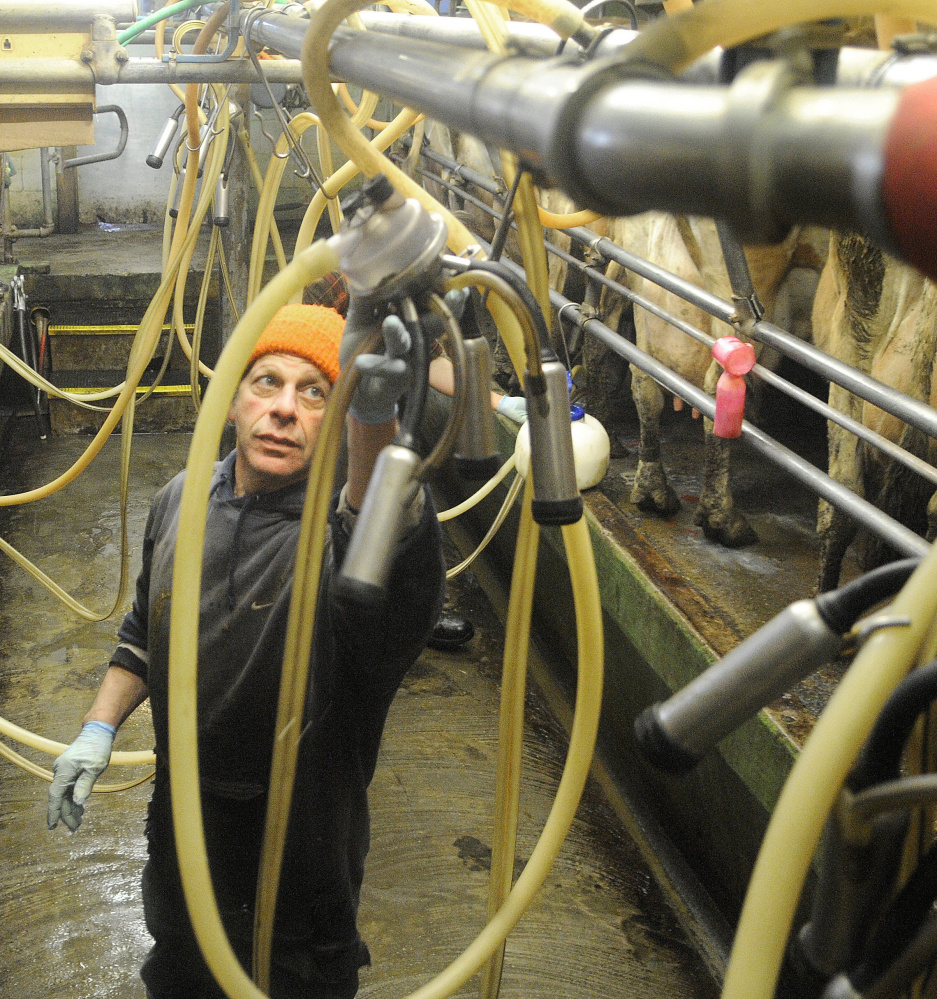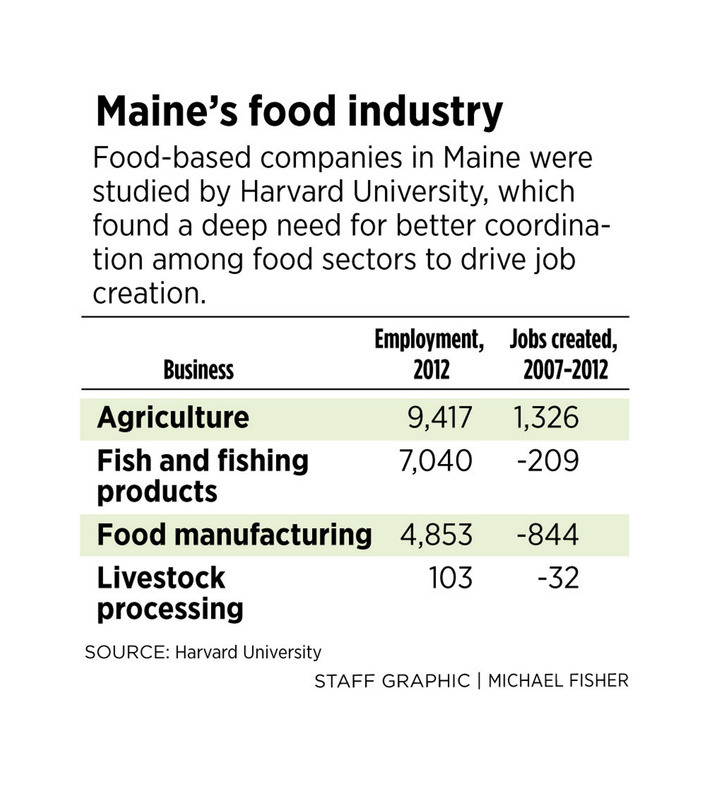Contributors to Maine’s food and beverage industry need to get together and develop a coordinated growth plan if they want the state to become a major provider to the region, according to a Harvard University report issued Thursday.
The grant-funded report, by the university’s Maine Food Cluster Project, is based on months of research that included a survey of more than 300 businesses. Its authors set out to answer the question: How can Maine grow its food industry to create jobs and generate economic growth in the state?
The researchers sought answers both inside and outside of Maine. They also looked at Denmark, Oregon and Vermont, where a statewide initiative launched in 2009 has helped spur a 35 percent increase in food manufacturing jobs. In addition to creating an action plan, the report also recommends creating a business-accelerator program for the industry and better coordination among the state’s more than 35 food- and beverage-related trade groups.
Food and beverage is a good industry to target for economic development because it already employs roughly 50,000 Mainers, and growing the industry further would benefit all regions of the state, the report’s authors said. It’s also an industry in which there is obvious growth potential.
However, there are a number of factors holding it back, according to the report. They include the state’s lack of economic competitiveness, the fact that most participants are tiny operations, the high costs of transportation and government regulation, and a lack of desire on the part of many Maine food and beverage producers to pursue rapid-growth strategies.
The report lays out a series of actions Maine could take to meet those challenges and elevate its food and beverage production. They include the creation of a long-term initiative that would bring together business leaders, educators, the nonprofit sector and government officials to formulate, implement and track the progress of a coordinated plan to grow the industry.
“What’s exciting is that Maine’s food cluster does have clear growth potential,” said Betsy Biemann, director of the Maine Food Cluster Project, and former director of the Maine Technology Institute.
The report was supported with an endowment grant from the Portland-based Libra Foundation.
STRENGTHS AND WEAKNESSES
The researchers identified several trends that they said indicate Maine’s food industry is headed in the right direction.
The state has a growing reputation as a destination for connoisseurs of “delicious, locally sourced food and beverages,” the report said, which could benefit even further from a heightened national demand for healthy and sustainably produced food.
Some niche sectors in the state have experienced growth in recent years, it said, including lobsters, scallops, aquaculture, craft beer and organic foods.
Six craft breweries have opened in Maine in the past several months, bringing the total to 64, and up to 12 more are expected to open in the coming six months, said Sean Sullivan, executive director of the Maine Brewers’ Guild.
Most are small operations that serve local residents and tourists, Sullivan said. Demand has been strong for locally brewed beer, he said, and the market has a capacity to absorb many more breweries.
Still, the craft brewing industry’s challenges mirror those of the overall food and beverage industry in Maine. For the businesses that would like to grow beyond the scale of a small operation, it can be difficult to find the necessary capital and expertise, Sullivan said.
“For the most part, brewers are able to sell their beer these days,” he said. “They want assistance with scaling up.”
Maine’s farming industry ranks high nationally for direct, local sales though food cooperatives and farmers’ markets, according to the report. In addition, the industry has been growing and attracting new farmers, including young people.
Innovation is helping to expand the state’s growing season via methods including energy-efficient greenhouses and hydroponics, but as with craft brewing, smaller players struggle with the high costs of transportation and distribution, as well as productivity challenges.
One problem in Maine that the report mentions frequently is fragmentation – too many small players acting independently without any common umbrella over them.
Sullivan said he would support an initiative that brings all sectors of the food and beverage industry together and seeks to solve their common problems.
“Thinking about challenges holistically is critical,” he said.
MAKING A PLAN
The report’s authors said Maine should emulate states such as Oregon and Vermont, where food and beverage industry leaders have worked together with trade associations, business-development groups, state agencies and university programs to develop “action-oriented” growth plans with clear metrics that can be tracked to measure progress. Those plans have shown clear results, they said.
“One key way to leverage (Maine’s) potential is greater collaboration among the business community and cluster support organizations – as we see in other states like Vermont and Oregon – to build an action plan that is focused on strengths, while also addressing gaps, to grow these industries and create jobs,” said Karen Mills, a senior adviser to the Maine Food Cluster Project, senior fellow at Harvard and former administrator of the U.S. Small Business Administration.
Mills said one of Maine’s strengths is the geographic diversity of businesses and jobs in the food and beverage industries, which means growth would benefit both northern and southern regions of the state.
The report also recommends the creation of a business accelerator for the food industry that would help businesses with things like networking, coaching, finding investors and business plan development.
“Going from baking brownies in your kitchen to selling them at commercial scale requires going through several phases,” Biemann said.
Maine already has a business accelerator program, the Maine Center for Entrepreneurial Development’s Top Gun program, that has helped several businesses in the food industry, Biemann said. Still, she said the industry would benefit even further from its own dedicated accelerator.
John Jordan, captain of the fishing vessel Storm Walker and president of Calendar Islands Seafood in Portland, said he supports the idea of a business accelerator specific to the food industry.
“As a lobsterman and the owner of a food-processing company, support of the scale-up process, in the form of technical business support as well as access to capital, is crucial,” Jordan said. “Launching a statewide food business accelerator, as the study suggests, could be a solid step in providing such support in a systematic and strategic way.”
Send questions/comments to the editors.








Comments are no longer available on this story